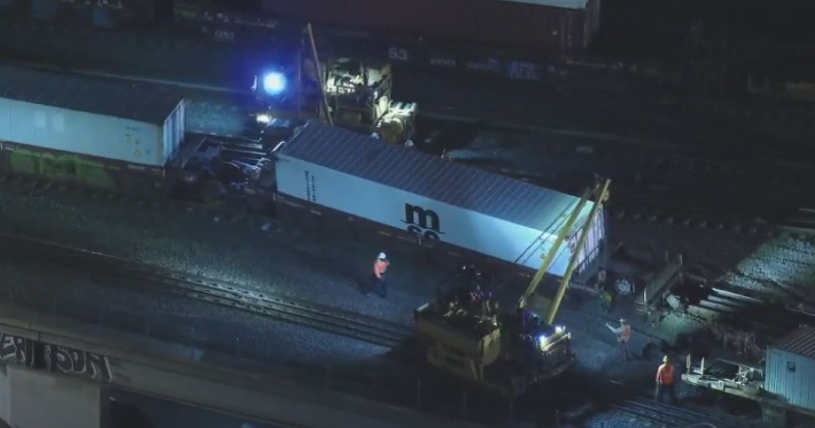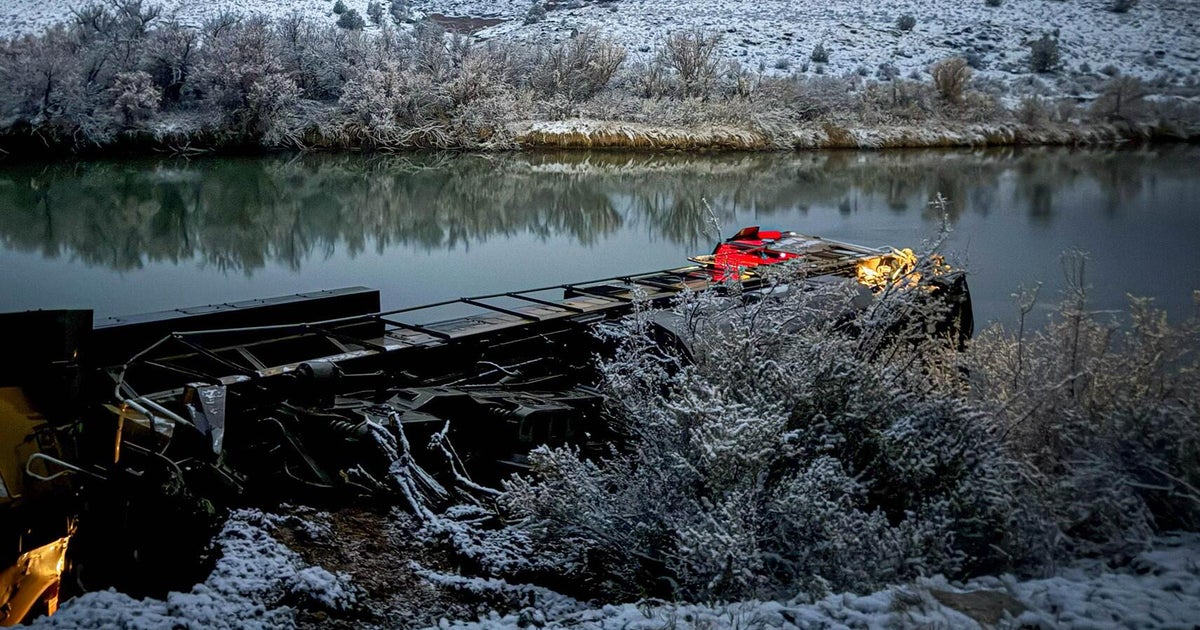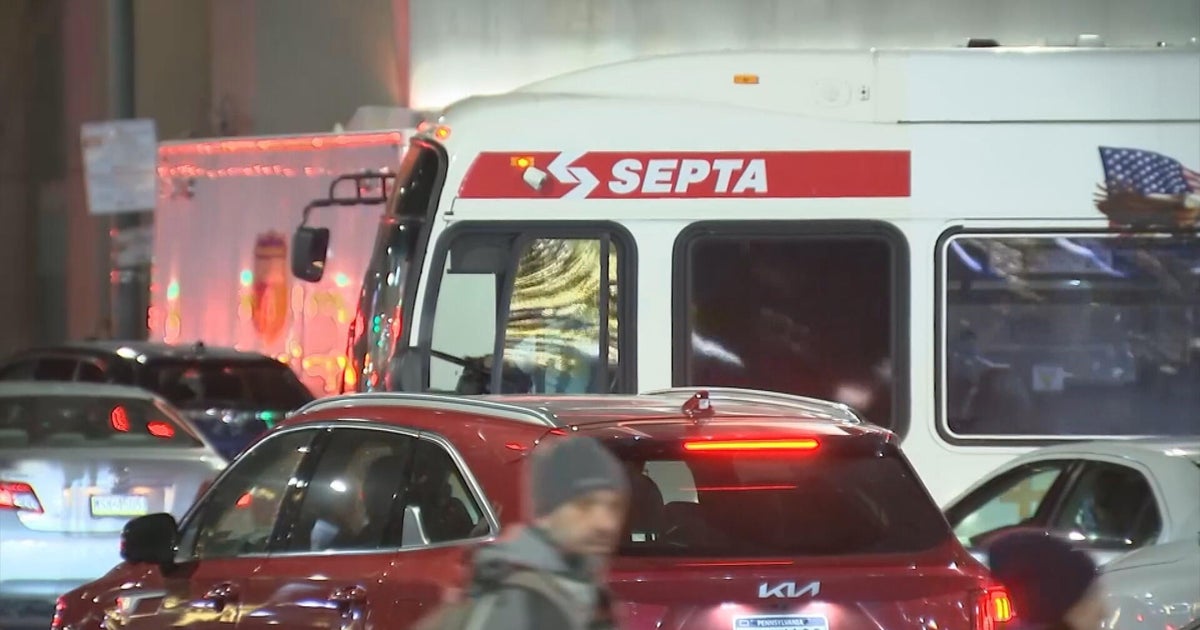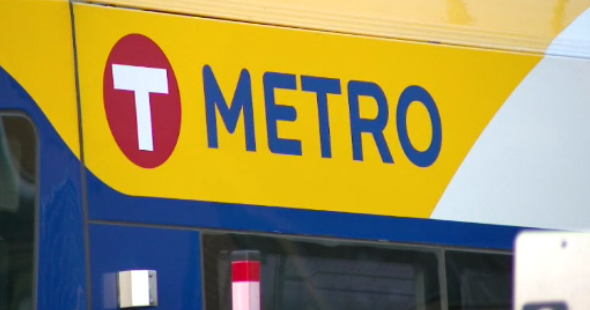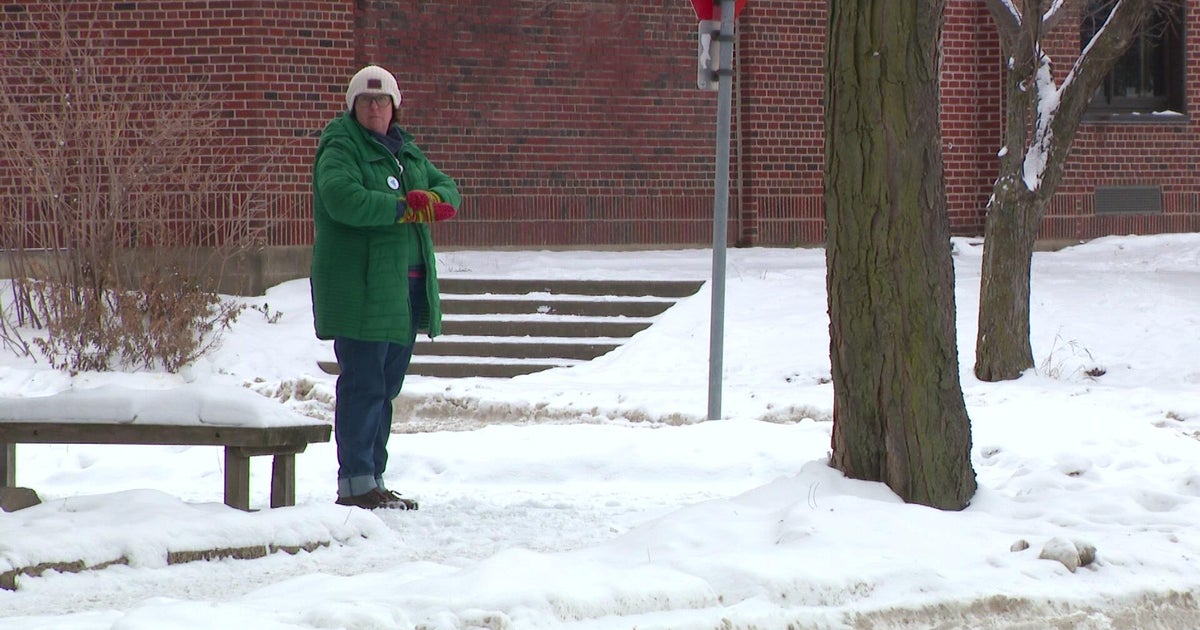Some New Jersey residents concerned about dangers of freight trains carrying toxic chemicals through state
NEW YORK -- As we saw when a train derailed in East Palestine, Ohio, in February, one accident can impact an entire community.
Trains carrying similarly toxic chemicals travel through New Jersey every day, so CBS2's Christine Sloan dug deeper into the risks and the push to prevent another environmental disaster.
Across the Garden State, freight trains with tank cars in between other rail cars roll through neighborhoods every day.
"It's dubbed 'bomb trains' if it is a flammable and potential explosive material," said Tracy Carluccio, deputy director of the Delaware Riverkeeper Network. "Vinyl chloride. It'll have ethanol, which is highly flammable. It'll have crude oil."
Carluccio, an environmental activist, has spent a career tracking the trains that she says travel over 1,000 miles of freight lines in New Jersey, going by playgrounds, schools, homes, parks, recreational fields and apartments.
"We are the most densely populated state in the nation, so there is really no place safe in New Jersey from the potential of a threat of catastrophe," she said.
Fiery East Palestine images were a chilling reminder of the 2012 New Jersey train derailment in the town of Paulsboro down south. Residents were evacuated after 20,000 gallons of vinyl chloride were released from a ruptured tanker.
Vinyl chloride is the same chemical Norfolk Southern intentionally burned in East Palestine to avoid an explosion. A New York Times report says the derailed trains in both East Palestine and Paulsboro were headed to the same southern New Jersey plant that makes plastic used in PVC flooring.
"We're scared," activist Paula Rogovin said.
Rogovin lives by freight tracks in Teaneck, and she says hazardous chemicals come through her town on rails, too.
"This area is in what we call the blast zone, the evacuation zone of this rail track," she said.
The content of rail cars is not easily identifiable to the average person. First responders use a guidebook to identify the placards and transport labels on parked tanker cars.
CBS2 found placard number 1075 for flammable gas, toxic and volatile phenol molten labeled 2312, and corrosive removable vinyl with an ID number of 1805, as well other placards indicating flammable material.
The Federal Railroad Administration requires hazmat cars be placarded so first responders know what they're dealing in a disaster, but Homeland Security concerns make it difficult for the public to easily understand the information, which is online.
"The public is kept from knowing what is in these rail cars by government standards and then also by the companies themselves," Carluccio said.
"We want the first responders to be alerted what is in those trains before they come through," Rogovin said.
Norfolk Southern CEO Alan Shaw testifying at a March Senate hearing said his company is training first responders to use an app which provides tips on how to identify rail tank car contents. He also apologized for the East Palestine derailment, promising assistance but reiterating, "We are a safe railroad. The number of derailments on Norfolk Southern last year was the lowest in the last two decades."
Federal Railroad Administration records show most trains carrying hazardous material arrive safely and without incident.
In fact, according to the Bureau of Transportation, trucks were responsible for 94% of accidents involving hazardous materials in 2022, while trains were just over 1%.
"Rail is by far the safest way to move goods on land, especially hazardous materials," said Ian Jeffries, the president of the Association of American Railroads.
But activists like Rogovin say it takes just one accident to devastate an entire community.
"Extremely terrified because what's in those trains is toxic," she said.
The National Transportation Safety Board's preliminary investigation says an overheated wheel bearing caused the East Palestine derailment, not human error.

